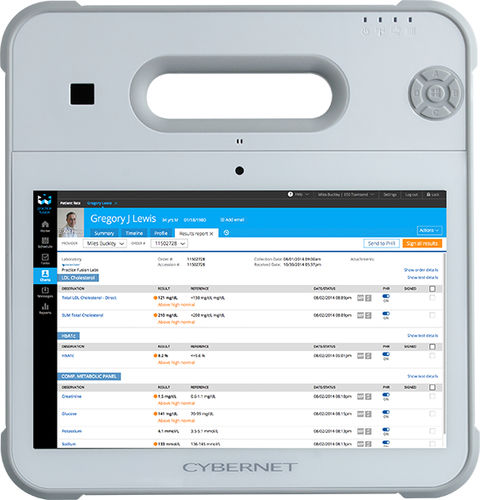
#Industry News
WHY IT’S IMPORTANT FOR HEALTHCARE TO STOP DIVERSION OF CONTROLLED SUBSTANCES
Stop illegal use of drugs among doctors and staff
Drug diversion is the illegal transfer, diversion, or abuse of a controlled substance(s) from the recipient for whom it was prescribed to another person for an illicit use. Examples include:
• Selling prescription drugs meant for a patient but instead to fill the prescriber’s pocket.
• Doctor shopping or obtaining various prescriptions from multiple doctors.
• Illegal Internet pharmacies which are not certified, don’t follow legal guidelines, etc.
• Drug theft or stealing prescription medications from legal sources.
• Prescription pad theft and forgery which are used to obtain prescription drugs.
• Illicit prescribing or prescribing meds to oneself, others, or for profit.
How does drug diversion affect patients?
Classes of prescription drugs commonly targeted for drug diversion per the Drug Enforcement Administration (DEA) include:
• Anabolic steroids (“growth hormones”) which include natural and synthetic testosterone.
• Central nervous system depressants like benzodiazepine and other barbiturates.
• Hallucinogens including ecstasy and LCD.
• Opioids like fentanyl, which lead to the deaths of over 70,000 users in 2021 alone.
• Stimulants including methamphetamine and khat.
The diversion of such controlled substances can be devastating. Diversion can result in:
The patient can suffer unrelieved pain. One nurse at a Connecticut-based fertility clinic replaced the fentanyl from pain relief pills with saline solution. The 20+ patients, whom the pills were meant for, suffered needlessly in pain after their surgeries.
Infect patients with deadly pathogens. A RN working in a Washington-based healthcare facility tampered with the injectable narcotic and antihistamine drugs for personal use. She had hepatitis C and infected at least 12 patients with the disease due to her tampering and use.
Impairment could compromise health care by doctors and other medical staff. Dr. Stephen Loyd, who had been using up to a 100 pain pills a day, documented how his usage affected his work: "I worked impaired every day; looking back, it scares me to death, what I could have done. I thought I was doing a pretty good job keeping it hidden. There were signs, behavioral changes. I canceled appointments, my paperwork was behind, I started dressing poorly, doing (hospital) rounds at odd hours.
But no one ever reported me."
What other consequences of drug diversion?
Healthcare organizations as a whole can suffer from drug diversion. Last year, Virginia-based Sovah Health agreed to pay $4.36 million to settle claims it had failed to effectively place controls on drug diversions of prescription opioids. These stem from cases from 2017 through 2020 where employees had either obtained the prescription drug illegally for personal use, or tampered with injectable versions meant for patient care. According to the federal government, Sovah had done little, if anything, to prevent such abuses like maintaining records on its medical computers.
States George A. Scavdis, who was involved in the case as Special Agent in Charge of the FDA Office of Criminal Investigations Metro Washington Field Office: “The FDA oversees the U.S. drug supply to ensure that patients receive medicines that are safe and effective. We will continue to protect the public health by holding accountable health care companies that fail to safeguard their prescription drug inventory and thereby compromise their patients’ health and comfort.”
What are some ways to prevent drug diversion?
People who engage in diversion of controlled substances are referred to as “diverters.” While they can be found from all walks of life, there are certain behaviors and signs many follow.
Medical staff should watch out for:
Strange stories, like needing a prescription now before they leave for an “important appointment.”
Reluctance to cooperate, like giving permission to contact prior doctors.
Unusually high (or low) understanding of medications, like if they can quote medical textbooks or claim to have absolutely no understanding of their so-called “chronic pains” except only specific drugs can help them.
Strange symptoms associated with their illnesses. Watch out especially for migraine headaches.
Specific drug requests while refusing other forms of medications or treatment.
It’s estimated that up to 15 percent of medical staff will indulge in some form of personal drug or alcohol use at some point in their careers.
Doctors and staff are strongly encouraged both ethically and legally to keep an eye out on diverters and report them promptly. They are also asked to engage in preventive steps to protect themselves and their group.
One way is to use technological aids. Drug cabinets and medical carts controlled by a medical box PC is one example. These items come with features like RFID readers and Imprivata authentication software not only to verify personnel have access, but make it easy to track them in any audit for any suspected diversion.
Artificial intelligence is also being looked into as a possible solution. There have already been some promising results.
Closing Thoughts
The diversion of controlled substances, especially prescription medications, for illegal use or profit is called drug diversion. The practice hurts patients, taking their meds for illegal use and profit.
The healthcare industry is looking to stop drug diversion. Various methods including computer tracking and AI.
Contact an expert at Cybernet if you’re interested in learning how medical computers can help in stemming the tide of drug diversion in your healthcare organization.








